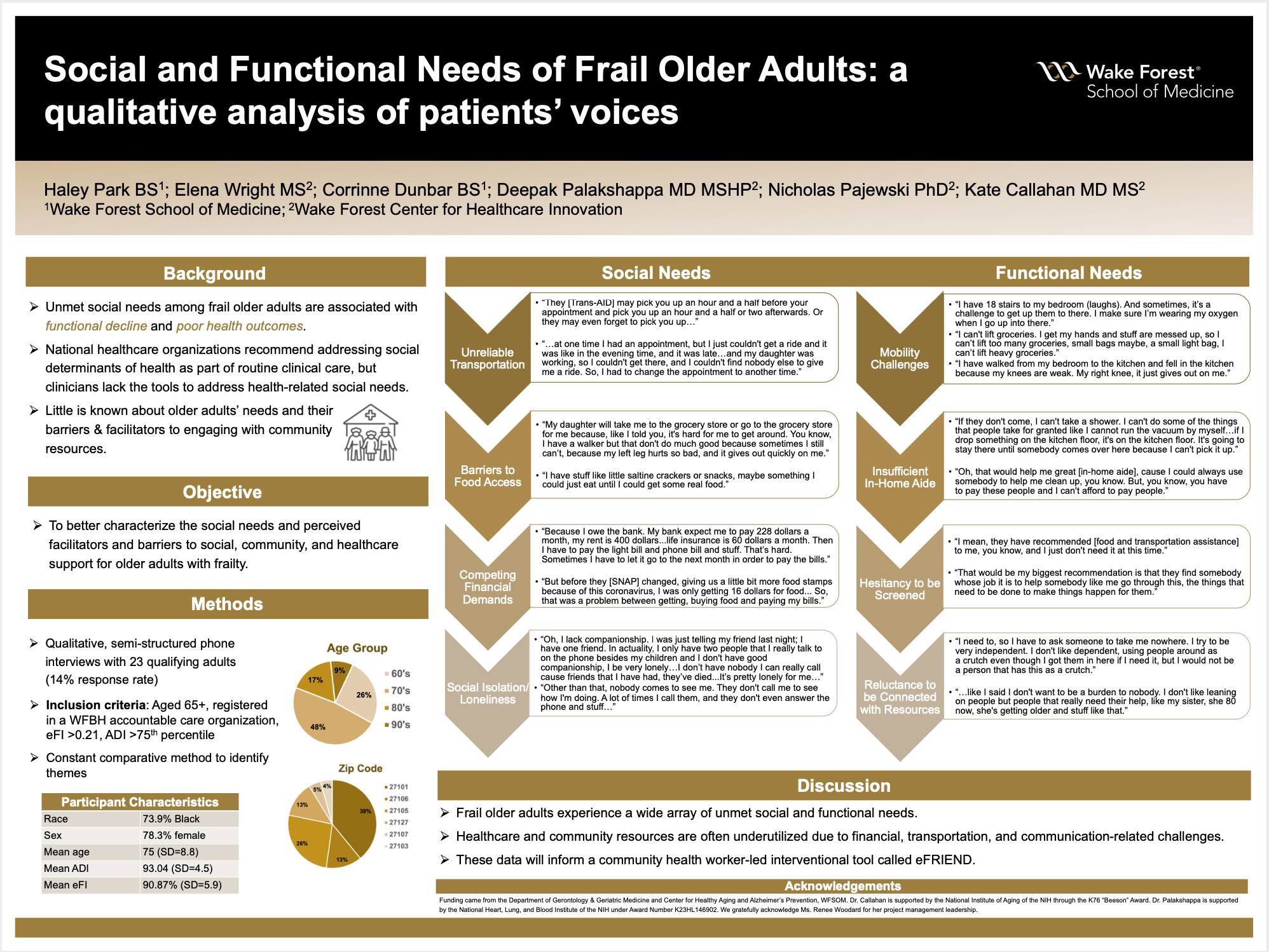Your message has been sent.
 CLOSE SIDEBAR
CLOSE SIDEBAR

Social and Functional Needs of Frail Older Adults: a qualitative analysis of patients’ voices
Haley Park
Background: Unmet social needs among frail older adults are associated with functional decline and an increased number of poor health outcomes. Yet, little is known about the most prevalent social needs and the barriers and facilitators to engaging with available community resources in the older adult population. We conducted this qualitative study to better characterize the social needs and perceived facilitators and barriers to social, community, and healthcare support for older adults with frailty and at risk for unmet social needs.
Hypothesis: We anticipate that older adults with frailty will describe social needs and facilitators/barriers to community resources that will differ from other age groups, health statuses, and functional levels.
Methods: This qualitative study used semi-structured, telephone-based interviews with frail older adults. Using electronic health record data, we included adults aged 65+ registered in one of the WFBH-associated accountable care organizations (ACOs) with both frailty (defined as an electronic frailty index (eFI) >0.21) and an increased geographic risk of unmet social needs (defined as an Area Deprivation Index >75th percentile). Those eligible were contacted by phone. Interviews were digitally recorded and transcribed using Ubiqus Reporting. We developed a coding scheme and analyzed narrative data using the constant comparative method to identify themes of potential unmet needs.
Results: We contacted 160 qualifying older adults, of whom 23 (14%) participated in interviews. Of those interviewed, 73.9% were Black and 78.3% were female, with a mean age of 75 (SD=8.8). We identified 4 primary themes for both social and functional needs. Social needs included themes of unreliable transportation, barriers to food access, competing financial demands, and social isolation/loneliness. Functional needs included themes of mobility challenges, insufficient in-home aide, hesitancy to be screened for social/functional needs, and reluctance to be connected with community resources.
Conclusions: Frail older adults experience a wide array of unmet social and functional needs. Although healthcare and community resources that address these needs do exist, they are often underutilized due to financial, transportation, and communication-related challenges. An opportunity exists to bridge community and healthcare resources so as to better address the unique social and functional needs of frail older adults.
-
Supporting Documents
- Social and Functional Needs of Frail Older Adults: a qualitative analysis of patients’ voices
Powered by Acadiate
© 2011-2024, Acadiate Inc. or its affiliates · Privacy
